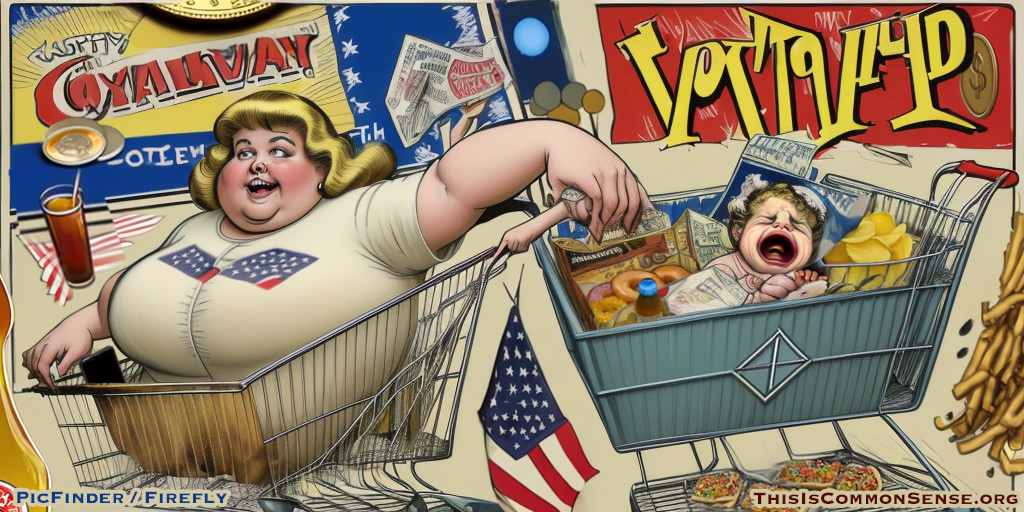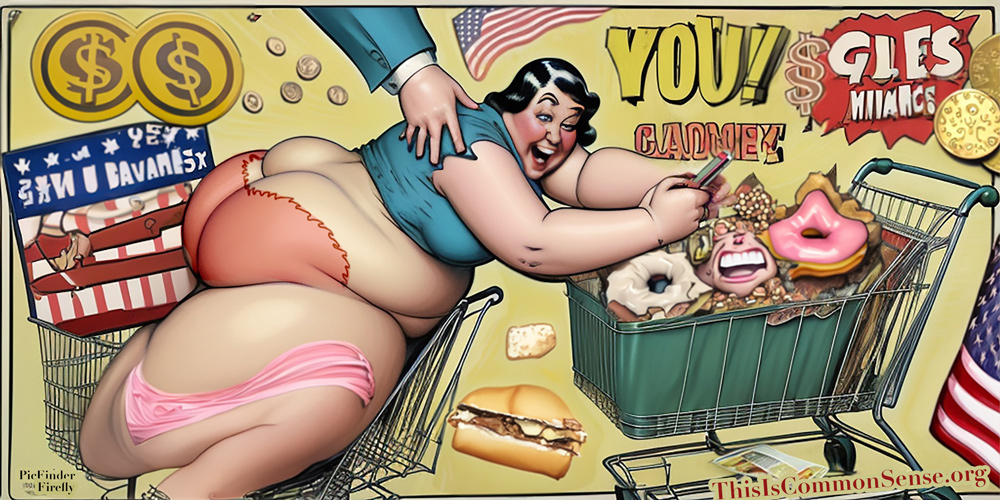Tucker Carlson said harsh things about “Dollar Stores” and “libertarian economics” on Glenn Greenwald’s System Update for December 16, as summarized in the show’s tweet:
“Libertarian economics was a scam perpetrated by
the beneficiaries of the economic system that theywere defending . . . I think you need to ask: ‘Does this economic system produce a lot of Dollar Stores?’
And if it does, it’s not a system that you want, because it degrades people — and it makes their lives worse and it increases exponentially the amount of ugliness in
your society. And anything that increases ugliness is evil.
So if it’s such a good system, why do we have all these Dollar Stores?”
At Reason, Liz Wolfe fell for the same trap that has apparently ensnared Mr. Carlson. She defended progress in the U.S. since the time he was born. What?
Contra Liz Wolfe, and in defense of Tucker, I’d say we are indeed living in tough times. Inflation’s way up, the birth rate is down, life-expectancy’s dropping, and a whole lot of Americans struggle to pay bills and keep even, financially, much less “get ahead.” The proliferation of dollar stores shows that the upscale stores are too expensive for too many.
They are a refuge for the poor.
But are they evilly uglifying, though?
Perhaps not as pretty as Safeway or Target, but they’re clean and you can buy a can of soup for four bits, a dollar less than at an upscale market.
Are the rise of discount consumer goods stores, like Dollar Tree and Dollar General, especially hideous and indicative of a blow to . . . the American spirit?
Seems more revelatory of a weird elitist streak in Tucker.
And what does libertarian — free-market — economics have to do with it? Libertarian economists have opposed all the major drivers of the current system: central banking, deficit spending, sovereign debt accumulation, taxation for redistribution, subsidy. The policies that have truly “hollowed out” the last semblance of progress.
But Tucker blames libertarian economists’ defense of equity markets for not only social decline but Dollar Stores.
He’s fallen for the progressives’ perennial scam: see a problem in our mixed economy and blame the freer part . . . not the role of elitist schemers with political power.
This is Common Sense. I’m Paul Jacob.

Illustration created with PicFinder and Firefly
—
See all recent commentary
(simplified and organized)

